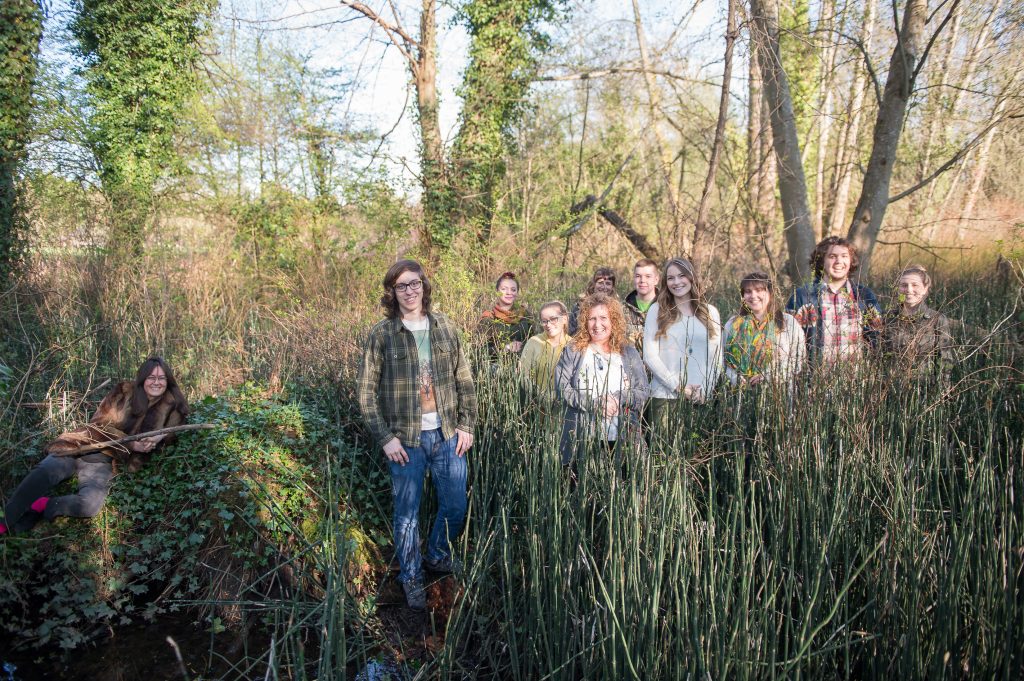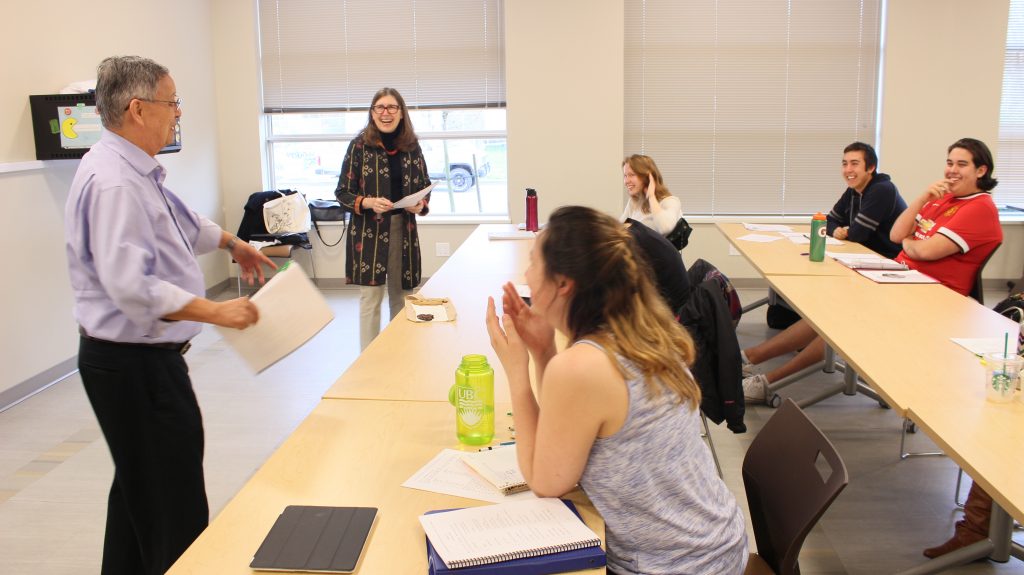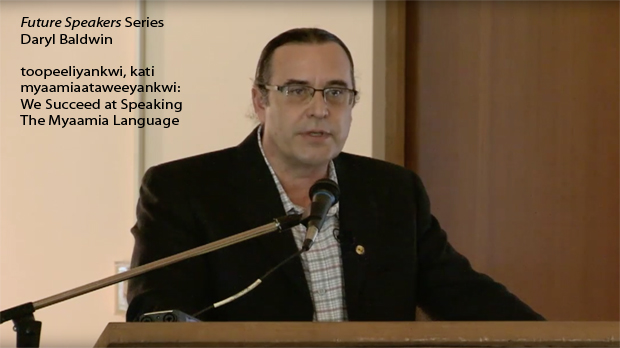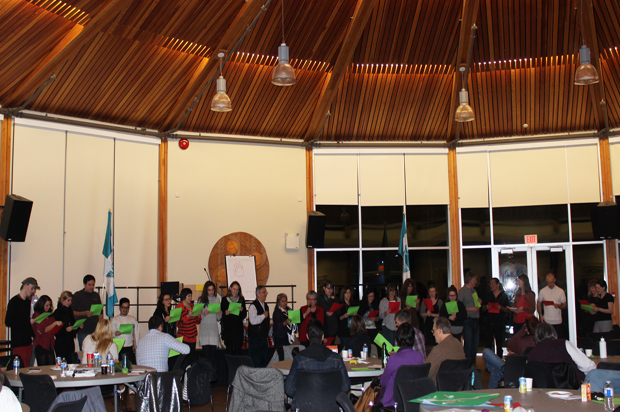Located on the traditional, ancestral, and unceded territory of the hən̓q̓əmin̓əm̓-speaking Musqueam people, and a founding partner in the Institute for Critical Indigenous Studies, the First Nations and Endangered Languages Program (FNEL) in the Faculty of Arts at UBC is dedicated to the documentation, conservation and revitalization of endangered Indigenous languages through the development and dissemination of ethical research protocols and community-responsive scholarship, culturally attentive teaching practices and research methods, and meaningful partnerships with Indigenous communities.
Students and scholars in the FNEL program engage in consultative and participatory research collaborations focused on Indigenous language and culture in ways that are informed by respectful dialogue and community protocols.
The FNEL program offers courses at all levels in methodologies and technologies for endangered language documentation, conservation, and revitalization along with university-level classes in Aboriginal and Indigenous languages. Our students graduate with contextually-rich and ethically-situated training in language reclamation and revival.
Click on the sections below to view our program goals:

1. Locate language revitalization as an essential part of truth, reconciliation, healing and wellbeing in all sectors of Canadian society.
2. Foreground the fundamental importance of language for Indigenous communities at local, national and global levels, and advocate for the linguistic and cultural rights of Indigenous peoples.
3. Champion the cultural sophistication and linguistic complexity of Indigenous languages and their oral traditions and histories.
4. Communicate to diverse audiences the central and interconnected relationship between language, land and oral history for Indigenous communities.
5. Contribute critical scholarly insights regarding the nature and processes of linguistic and cultural colonization.
6. Challenge entrenched academic colonial hierarchies by promoting Indigenous perspectives on language and valuing community voices as equals.
7. Acknowledge, critique, and negotiate the historical and contemporary challenges facing Indigenous communities and their languages in British Columbia, Canada and around the world.

8. Develop, practice and promote community protocols and perspectives for ethical engagement with First Nations peoples and their languages.
9. Experience participating in community-based language initiatives.
10. Engage productively and transparently with community needs, priorities, and local research agendas appropriate to each context.
11. Work respectfully with community-based knowledge-keepers and Indigenous expertise toward the shared goals of language reclamation and revitalization.
12. Incorporate the significance of place-based knowledge in research involving Indigenous language and culture.

13. Recognize and discover grammatical structures of endangered languages for the benefit of community-based maintenance and revitalization.
14. Perceive, distinguish and transcribe speech sounds of endangered languages, and explore their relationships with community-based orthographies.
15. Contribute to the development of innovative approaches for teaching and learning endangered and Indigenous languages distinct from conventional, literacy-based pedagogy for foreign languages.
16. Build individual and community capacity for the application of contextually-appropriate best practices, archival standards and current technologies in multimedia language documentation through recording, archiving, and access.
17. Develop skills that can be carried forward beyond the classroom to embark on the lifelong process of learning, teaching and maintaining Indigenous languages, through multiple modes of transmission.

18. Model language learning emphasizing broad competence, including accurate pronunciation, basic grammatical structures, conversation, listening and literacy skills, and the study of oral traditions in their cultural context.
19. Promote opportunities for family-based and community-based language transfer.
20. Facilitate the use of archival and other legacy resources as vehicles to develop and enhance First Nations language fluency.
21. Celebrate the resilience and persistence of First Nations languages and cultures.
